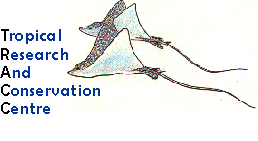|
|
|
|
Blast fishing regulations
|
 |
|
|
|
|
Most governments with coral reef resources in the South China Sea have tried to combat the blast fishing problem using command and control regulations , although community based marine protected areas (MPA)
have been used with some success in the Philippines . The use of MPA's has resulted in an increase in awareness but this has not yet resulted in a more than a local reduction in the use of destructive fishing methods .
|
|
In Sabah, while information on the damaging effects of blast fishing on reef habitats has been available for over 20 years, there is still a lack of commitment from the national and state authorities. The need to act is still not yet obvious to the relevant government authorities, even though the fisheries landings of the state have fallen by 44% in 10 years. There are several reasons for this decline: mangrove deforestation, sedimentation of shallow reefs and over-fishing by trawlers are at least partly to blame.
|
|
Malaysian law specifically bans blast fishing, yet enforcement agencies are dissatisfied because magistrates do not |
||||
|
A common complaint is that the cost of catching the wrong-doer is much higher than the fine the courts impose. Most government officials are simply not yet aware of the economic losses resulting from destructive fishing practices.
In Sabah, there is interest to enforce the laws from the senior members of the enforcement agencies but they are hampered by the difficulties and cost of enforcing laws in remote areas and far out to sea.
|
take the cases seriously.
All the fishers knew that their home reefs |
Despite being illegal and potentially dangerous to the operator, blast fishing is still the method of choice for many fishing boats.
Some blast fishers understand that their activities destroy the habitat that the fish depend on, but in all interviews conducted the fishers were not aware that their activities threatened their own livelihood. |
||
|
had deteriorated but most were convinced that there were better reefs further out, and that they had to fish the further reefs before the outsiders (large scale operations) could come and take all the fish. |
||||
|BLAST FISHING| |BLAST FISHING FREQUENCY| |ECONOMICS| |BLAST FISHING REGULATIONS| |EFFECTS ON BIODIVERSITY|
|EFFECTS ON CORAL REEFS| |ECOTOURISM PROTECTION|

![]()